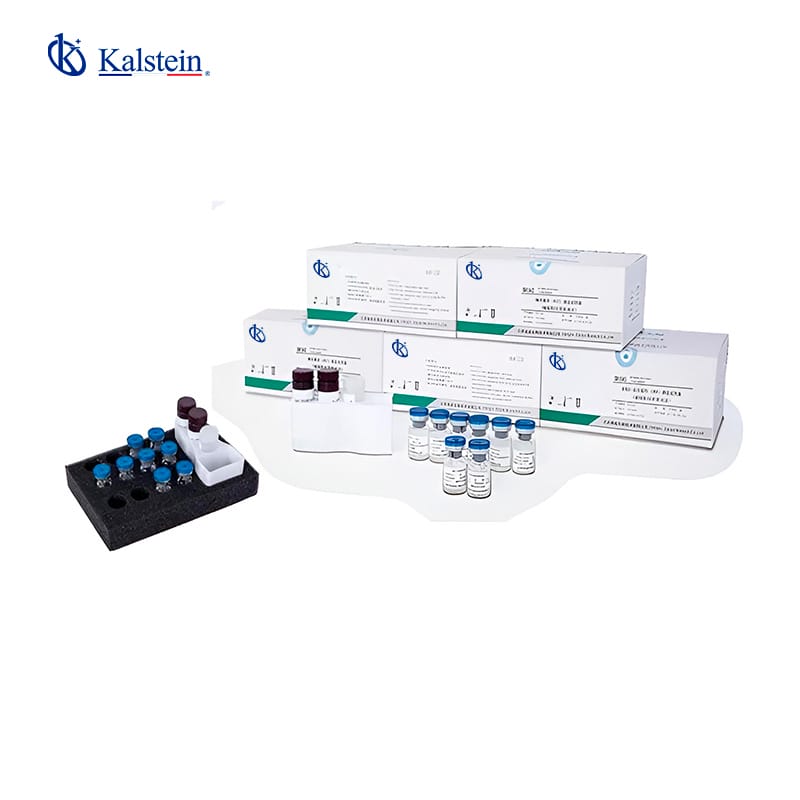Product Description
The Cardiac Test Marker, particularly models YRA326 to YRA333, is a state-of-the-art diagnostic tool designed for precise cardiac analysis. This product line employs enzymatic chemiluminescence, utilizing alkaline phosphatase as its luminous marker, ensuring high sensitivity and specificity in results. The product is available in kits containing 100, 50, or 48 tests, offering flexibility and convenience for various laboratory needs.
These cardiac markers test for a range of parameters, including cTnI, MYO, CK-MB, HCY, H-FABP, BNP, D-Dimer, and NT-proBNP, catering to a comprehensive spectrum of cardiac assessments. The competitive method used in these markers guarantees accuracy, facilitating reliable detection of cardiac diseases.
Structurally, the kits are equipped with magnetic beads, Anti-A/Anti-B antibodies, calibrators, QC1, and QC2, designed to work with serum samples under optimal storage conditions of 2-8°C. Such comprehensive and advanced components ensure that the Cardiac Test Marker provides consistent, high-quality results.
| Model | YRA326 | YRA327 | YRA328 | YRA329 | YRA330 | YRA331 | YRA332 | YRA333 |
| Tested Parameter | cTnI | MYO | CK-MB | HCY | H-FABP | BNP | D-Dimer | NT-proBNP |
| Luminous principle | Enzymatic chemiluminescence | |||||||
| Luminous Marker | AP(alkaline phosphatase) | |||||||
| Specification | 100 test/kit, 50 test/kit, 48 test/kit | |||||||
| Principle | Competitive Method | |||||||
| Components | Magnetic beads, Anti-A/Anti-B, Calibrators, QC1, QC2 | |||||||
| Sample | Serum | |||||||
| Storage | 2-8°C | |||||||
Market Price
The Cardiac Test Marker is competitively priced, considering its advanced features and high-quality performance. In the market, prices for such diagnostic kits range broadly due to varying factors such as the number of tests per kit, included components, and the specificity of parameters tested. Typically, prices can range from $500 to $1500, depending on the specific model and configuration selected. Purchasing through the Kalstein platform ensures access to some of the most competitive rates available, with a guarantee of quality and reliability.
Frequently Asked Questions
What are the primary parameters tested by these cardiac markers?
The Cardiac Test Marker range tests key parameters including cTnI, MYO, CK-MB, HCY, H-FABP, BNP, D-Dimer, and NT-proBNP, critical in assessing various cardiac conditions.
How are the kits stored?
To maintain the integrity of the tests, kits should be stored at a temperature of 2-8°C.
What is the principle used in these markers?
These diagnostic kits employ a competitive method, which is both reliable and accurate for cardiac testing.
Advantages and Disadvantages
Advantages:
The Cardiac Test Marker offers several significant advantages, including high sensitivity and specificity thanks to its enzymatic chemiluminescence method. It allows for a comprehensive range of cardiac parameters to be tested, providing flexibility and adaptability to diverse laboratory environments. The competitive method ensures accuracy, while the variety in test count per kit offers scalability depending on lab needs.
Disadvantages:
The primary disadvantage is that the kit requires specific storage conditions and may incur additional costs for refrigeration if not readily available. Additionally, while the competitive method is accurate, it may require precise handling and trained personnel to ensure consistent results.
Product Usage in the Field
In practical scenarios, the Cardiac Test Marker is used extensively in clinical laboratories to assess cardiac health swiftly and accurately. The test can be set up quickly thanks to its user-friendly design, allowing lab technicians to process multiple samples efficiently using serum as the primary sample medium. This diagnostic tool is vital in emergency settings where rapid diagnosis can be life-saving.
Healthcare providers use the results to make informed decisions regarding patient care, evaluating and diagnosing myocardial infarctions and other cardiac conditions. This tool’s reliability in identifying biomarkers makes it essential equipment in hospitals and cardiology clinics worldwide.
Recommendations
For optimal use of the Cardiac Test Marker, it is recommended that facilities ensure proper storage conditions are maintained, adhering strictly to temperature guidelines. Regular calibration and quality checks using the provided QC components help sustain the accuracy and reliability of the results. It’s beneficial to have trained personnel handling the tests to fully leverage their potential. Additionally, laboratories should consider the patient’s specific clinical needs when selecting the test parameters.
To further maximize the utility of this product, purchasing through the Kalstein Plus platform is advised. This ensures not only competitive pricing but also access to continuous support and updates, enhancing the overall quality of service provided by the laboratory.
If you’re seeking a fusion of innovation and quality, you’ve come to the right place. At Kalstein, we offer you the luxury of exploring our exclusive catalog of laboratory equipment. We manufacture each piece with a level of excellence. Our intuitive and agile online purchase channels are designed for your convenience, ensuring the most user-friendly prices. Don’t hesitate any longer, we bring science to life, it’s time to become part of our community. https://kalstein.net/en/product/cardiac-test-marker-yra326-yra333/.


